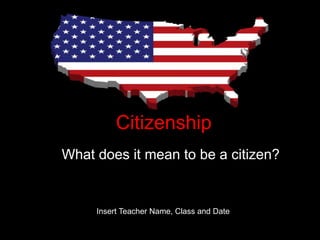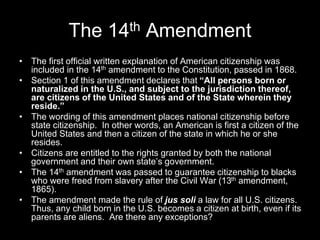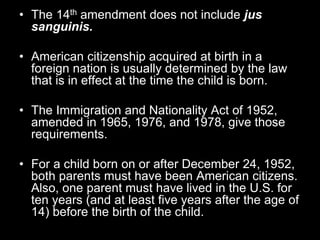This document defines citizenship and discusses how it is gained and maintained. It notes that citizenship provides both rights and responsibilities. One can become a citizen via birth in a country (jus soli) or with citizen parents (jus sanguinis), or through naturalization. The US Constitution and 14th Amendment establish citizenship rights. Naturalization requires residency and knowledge of civics. Citizenship can be lost by other citizenship or treason. Historically, citizenship originated in city-states and expanded through empires.


















